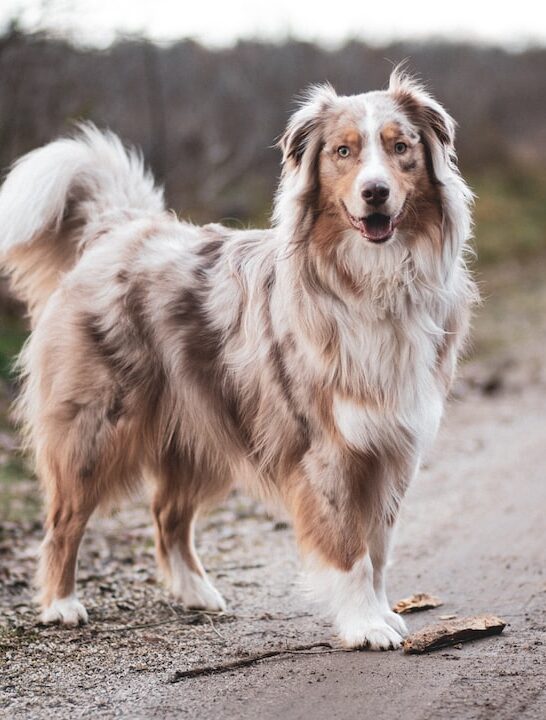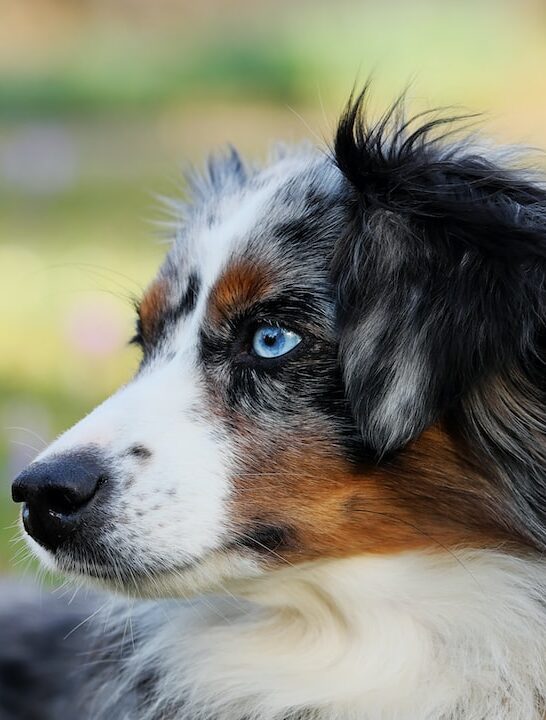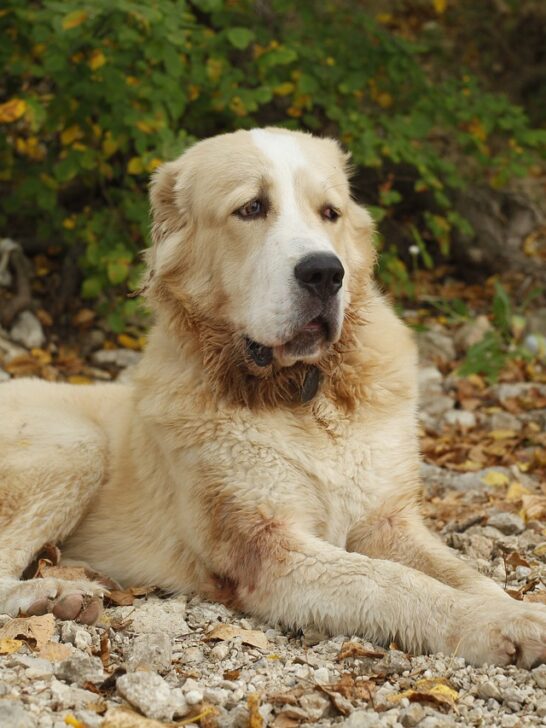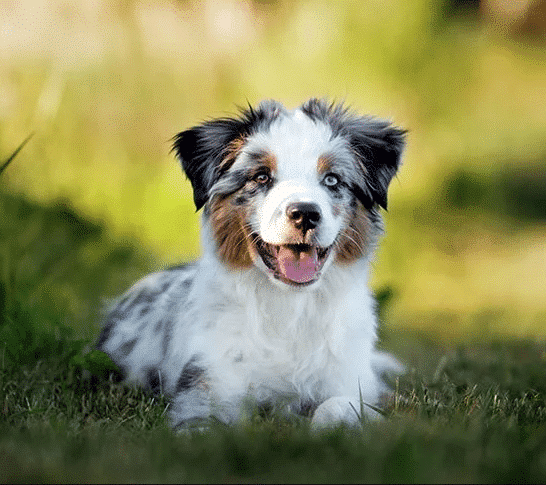Caring for a Black Long-Haired German Shepherd
The majestic black long-haired German Shepherd is a sight to behold, effortlessly captivating hearts with its regal appearance and unwavering loyalty. This striking canine companion is not only a natural protector but also an affectionate family member. If you’re fortunate enough to have one of these beautiful dogs in your life, you’ll want to ensure they receive the utmost care and attention.
It’s essential to understand that this breed may require more care compared to other German Shepherd types. With their luxuriously long, thick coats, these dogs need specific grooming techniques, routines, and particular health considerations.
That’s why this comprehensive article provides valuable information on how to care for your cherished black long-haired German Shepherd. Read on as we guide you through the intricacies of grooming, training, nutrition, health, and more — ensuring your beloved dog thrives in your loving care!
Key Takeaways:
- Due to their thick, lustrous coats, long-haired German Shepherds require specific grooming techniques.
- Regular vet check-ups and preventative measures are vital for maintaining overall health.
- Weight management and exercise are key in preventing potential health issues.
- A balanced, nutrient-rich diet supports overall well-being and coat health.
- Consistent grooming and healthcare practices enhance your dog’s quality of life.

Grooming a Long-Haired German Shepherd
A black long-haired German Shepherd’s coat is its crowning glory, but it also requires consistent grooming to maintain its luster and prevent matting. For a comprehensive grooming routine, consider incorporating the following steps to ensure your black long-haired German Shepherd’s coat remains vibrant and healthy:
- Brushing. Brush your dog’s fur at least three times a week with a quality slicker brush or pin brush to remove dead hair and distribute natural oils. Make sure to pay special attention to areas prone to tangles, such as behind the ears, underbelly, and around the legs.
- Bathing. Regular baths are essential in keeping your dog’s coat clean and healthy. Aim for monthly bathing sessions using a mild dog shampoo that won’t strip away natural oils. Remember to dry your dog thoroughly after each bath, as damp fur can lead to matting, skin irritation, or fungal infections.
- Detangling. Before brushing, use a detangling spray or conditioner specially formulated for dogs to help loosen any knots or tangles. Gently work through the tangled areas with your fingers or a wide-toothed comb, taking care not to pull too hard on your dog’s fur.
- Trimming. Occasionally, it may be necessary to trim excess fur around sensitive areas like the ears, paws, and sanitary regions. Use a pair of blunt-tipped grooming scissors to carefully trim these areas, ensuring your dog’s comfort and safety during the process.
- Nail care. Regular nail trims are essential for maintaining your dog’s overall health and preventing injury. Invest in a quality pair of dog nail clippers and trim your dog’s nails every 3-4 weeks or as needed. If you’re unsure about how to trim your dog’s nails safely, consult with a professional groomer or veterinarian for guidance.
- Ear care. To prevent infections and maintain overall ear health, clean your dog’s ears with a canine ear-cleaning solution and cotton balls every few weeks. Avoid using cotton swabs as they can cause damage to the ear canal.
- Dental care. Maintaining good oral hygiene is crucial for your dog’s overall well-being. Invest in a canine toothbrush and toothpaste, and brush your dog’s teeth at least three times a week. Regular dental check-ups with your veterinarian are also essential in identifying and addressing potential dental issues.
By incorporating these additional grooming practices into your routine, you’ll ensure that your black long-haired German Shepherd not only looks its best but also enjoys optimal health and well-being throughout its life.
Remember, consistency is key when it comes to maintaining a beautiful and healthy coat; dedicate time each week to pamper and care for your dog’s gorgeous fur. You can also schedule regular appointments with a professional dog groomer if you can’t keep up with all the maintenance yourself.

Essential Health Care and Prevention Tips
Ensuring that your beloved pet stays in good health goes beyond regular check-ups and illness treatment; it involves proactive strategies designed for prevention and wellness. Below are some essential health care and prevention tips to ensure your black long-haired German Shepherd’s well-being:
- Routine check-ups with your veterinarian. Regular vaccinations, parasite prevention (including heartworm, flea, and tick treatments), and spaying/neutering are all essential aspects of proactive health care.
- Microchipping. A microchip is a small, electronic device implanted under your dog’s skin that contains a unique identification number. Registering this number with a national pet recovery database helps increase the chances of a lost pet being reunited with its owner. Discuss microchipping options with your veterinarian during your dog’s next check-up.
- Weight management. Maintaining a healthy weight is crucial for your dog’s overall health and can help prevent diseases such as diabetes, joint issues, and heart problems. Regular exercise and portion-controlled feeding can aid in maintaining an optimal weight.
- Vaccination schedule. Adhering to your veterinarian’s recommended vaccination schedule is vital in protecting your dog from contagious diseases such as parvovirus, distemper, rabies, and more.
- Preventative medications. Administering monthly heartworm, flea, and tick preventatives is essential in protecting your dog against these common parasites. Consult with your veterinarian for the most suitable preventative medications for your dog based on factors like age, size, and location.
- Regular health screenings. As your dog ages, it may be beneficial to schedule periodic health screenings with your veterinarian. These screenings may include blood tests, x-rays, or ultrasounds to detect potential health concerns early on.
- Pet insurance. Investing in pet insurance can help cover unexpected veterinary costs associated with accidents or illnesses. Research various pet insurance providers and plans to find one that best suits your needs and budget.

Nutritional Needs and Feeding Guidelines
A healthy diet is critical in supporting your black long-haired German Shepherd’s overall well-being and ensuring that its coat looks shiny and healthy.
The following guidelines will help you ensure that your black long-haired German Shepherd receives the essential nutrients they need to thrive:
- Feeding frequency. Establish a consistent feeding schedule by dividing your dog’s daily food intake into two or three meals per day. This routine can aid in digestion and prevent overeating.
- Fresh water. Always provide access to fresh, clean water for your dog. Staying hydrated is crucial for overall health and bodily functions.
- Treats and snacks. While treats can be great motivators during training sessions, be mindful of their calorie content. Aim for healthy options, such as fruits, vegetables, or lean meats, and avoid overindulging your dog to prevent weight gain.
- Dietary supplements. If your veterinarian recommends dietary supplements — such as glucosamine for joint health, fish oil for skin and coat health, or probiotics for digestive support — ensure that you follow their guidance on proper dosage and administration.
- Grain-free options. Dogs may have sensitivities or allergies to grains found in many commercial dog foods. Consult with your veterinarian if you suspect your dog may benefit from a grain-free diet.
- Transitioning foods. If you decide to switch your dog’s food, make the transition gradual to prevent stomach upset. Mix increasing amounts of the new food with decreasing amounts of the old food over a period of 7-10 days.
- Monitor your dog’s condition. Regularly assess your dog’s body condition (weight, coat quality, energy levels) to determine if adjustments are necessary in their diet. Consult with your veterinarian if you notice any concerning changes in your dog’s appearance or behavior related to its nutritional intake.
Adhering to these nutritional guidelines and working closely with your veterinarian can be an excellent way to provide optimal nutrition for your black long-haired German Shepherd throughout its life stages. A balanced, nutrient-rich diet is the foundation of a healthy, happy dog.
In Conclusion
Caring for a black long-haired German Shepherd is a unique and rewarding experience, filled with moments of connection, loyalty, and mutual respect. It is a commitment that requires effort, time, and love, but the rewards you reap — a healthy, happy dog with a shiny, glorious coat — make every bit of effort worthwhile.
By adhering to the grooming, health, and nutrition guidelines outlined in this article, you’ll ensure your furry companion thrives in your care. It’s not just about maintaining your dog’s majestic appearance but fostering an environment where their innate abilities, confidence, and joy can shine through.
Embrace the journey of companionship with your black long-haired German Shepherd, cherishing the unique bond between you and your furry best friend!






























